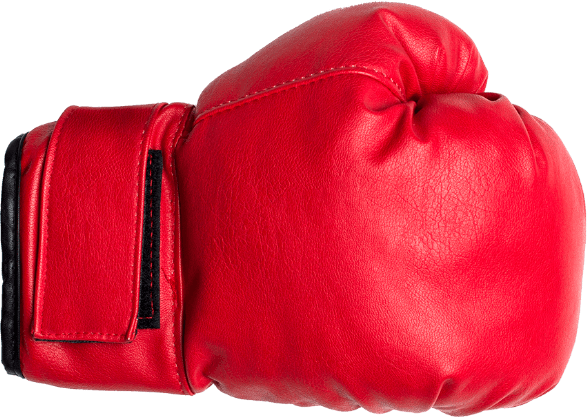The Art of Gathering Documentation: A Comprehensive Guide
In the realm of business, law, finance, and many other fields, the phrase “documentation is key” is often repeated. Why? Because it’s true. Documentation is the backbone of any successful venture, legal case, or project. It provides clarity, accountability, and a historical record of actions taken. Whether you’re an entrepreneur, a legal professional, a project manager, or simply someone striving for personal organization, mastering the art of gathering documentation is an invaluable skill.
In this comprehensive guide, we will explore the significance of gathering documentation, its various applications, best practices, and tips to help you become proficient in this essential task.
Why Is Gathering Documentation Important?
Before diving into the how, let’s establish why gathering documentation is crucial in various aspects of life and business:
-
Legal Proceedings: In legal cases, the right documentation can make or break a case. It serves as evidence, providing a clear record of events, contracts, and agreements.
-
Project Management: Effective project management relies on organized documentation. It keeps teams aligned, ensures tasks are completed on time, and helps in identifying bottlenecks.
-
Financial Management: Managing personal or business finances requires proper documentation of income, expenses, tax records, and investments. This ensures financial stability and compliance.
-
Quality Control: In industries such as manufacturing and healthcare, documentation ensures that processes adhere to quality standards and regulations.
-
Knowledge Sharing: Documentation is a vehicle for knowledge transfer. It allows organizations to capture institutional knowledge and share it with employees and stakeholders.
-
Auditing and Compliance: Many industries require strict adherence to regulations. Documentation is the cornerstone of audits and compliance efforts.
What Should You Document?
The first step in gathering documentation is to determine what needs to be documented. This varies depending on your specific goals or the nature of your work, but here are some common categories to consider:
-
Contracts and Agreements: Keep copies of all contracts and agreements related to your business or personal life. This includes employment contracts, rental agreements, partnership agreements, and more.
-
Financial Records: Maintain records of income, expenses, receipts, and tax-related documents. This is essential for budgeting, tax filing, and financial planning.
-
Project Documentation: In project management, document project plans, timelines, budgets, meeting minutes, and progress reports. This ensures transparency and accountability.
-
Legal Documents: Legal proceedings often require extensive documentation, including court filings, evidence, and correspondence with legal counsel.
-
Correspondence: Keep a record of emails, letters, and communication with clients, customers, colleagues, and partners.
-
Policies and Procedures: In business, document company policies, standard operating procedures, and compliance guidelines.
-
Research and Reference Material: If you’re in academia or research, organize and document your research findings, papers, and reference materials.
Best Practices for Gathering Documentation
Now that we’ve established the importance of documentation and what to document, let’s explore some best practices for gathering and managing documentation effectively:
-
Consistency: Establish a consistent naming and filing system for your documents. Use clear and descriptive file names and folder structures.
-
Backup: Regularly back up your documentation to prevent loss due to hardware failures or accidents. Consider using cloud storage or external drives for redundancy.
-
Version Control: In collaborative projects, use version control systems to track changes and revisions. This prevents confusion and ensures you have access to previous versions if needed.
-
Metadata: Include metadata or tags to make it easier to search and categorize documents. This is especially helpful in large document repositories.
-
Access Control: Implement access controls and permissions to ensure that sensitive documents are only accessible to authorized individuals.
-
Regular Audits: Periodically review and audit your documentation to ensure it remains accurate and up to date. Remove outdated or irrelevant documents.
-
Training: Train team members or colleagues on the importance of proper documentation and your organization’s specific documentation processes.
-
Security: Use encryption and other security measures to protect sensitive documents from unauthorized access.
Tools for Gathering Documentation
In the digital age, numerous tools and software applications can assist in the process of gathering and managing documentation. Here are some popular options:
-
Document Management Systems (DMS): DMS software allows you to store, organize, and retrieve documents efficiently. Examples include Microsoft SharePoint and Google Workspace.
-
Cloud Storage: Services like Google Drive, Dropbox, and Microsoft OneDrive provide secure cloud-based storage for documents, offering easy access from anywhere.
-
Project Management Tools: Tools like Asana, Trello, and Monday.com are ideal for managing project-related documentation.
-
Scanning Apps: Mobile scanning apps, such as Adobe Scan or Evernote Scannable, make it easy to digitize paper documents.
-
Version Control Software: For collaborative projects, version control software like Git and GitHub helps track changes and revisions.
-
Electronic Signature Software: Platforms like DocuSign and Adobe Sign allow for secure electronic signatures on digital documents.
Conclusion
Mastering the art of gathering documentation is not only a valuable skill but a fundamental aspect of success in various areas of life and business. Proper documentation provides clarity, accountability, and a historical record of actions taken. Whether you’re navigating legal proceedings, managing projects, or organizing your personal finances, the ability to gather and manage documentation effectively is a skill that will serve you well, ensuring that you have the evidence and information you need to make informed decisions and achieve your goals.






